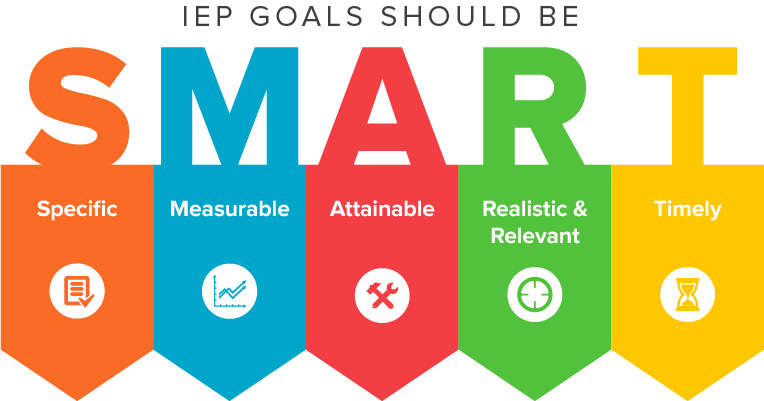Summary
Measurable IEP goals that target executive functioning skills are instrumental in supporting students with a wide range of learning needs. By incorporating these goals into individualized education plans, educators can provide targeted interventions that can support students in developing essential cognitive processes that promote academic success and independence.
In the realm of special education, Individualized Education Programs (IEPs) play a crucial role in supporting students with diverse learning needs. When it comes to addressing executive functioning skills, creating measurable goals within the IEP is essential. Executive functioning refers to a set of cognitive processes that enable people to plan, organize, manage time, pay attention, regulate emotions, and demonstrate self-control. By incorporating measurable IEP goals that target executive functioning, educators can provide effective interventions and support students in achieving their fullest potential.
Understanding Executive Functioning
Executive functioning encompasses various skills that facilitate goal-directed behavior and cognitive flexibility. These skills are important for academic success, social interactions, and independence. The core components of executive functioning include:
- Working memory: The ability to hold and manipulate information in mind while performing tasks.
- Cognitive flexibility: The capacity to adapt to new situations, shift perspectives, and switch between tasks.
- Inhibition: The skill to inhibit impulsive actions, control attention, and stay focused.
- Planning and organization: The ability to develop a plan, set priorities, and manage time effectively.
- Self-monitoring: The capacity to evaluate one’s own performance, regulate behavior, and make adjustments as needed.
Learn more about executive functioning by following the link below:
Everything Executive Functioning Handbook
Creating Measurable IEP Goals
When developing measurable IEP goals that address executive functioning, it is important to follow the SMART criteria:
- Specific: Goals should be specific and clearly define the desired skill or behavior. For example, “The student will improve working memory skills by being able to remember and follow multi-step directions in 80% of classroom tasks.”
- Measurable: Goals should be measurable, allowing educators to track progress and determine if the goal has been achieved. For instance, “The student will demonstrate improved cognitive flexibility by successfully switching between academic tasks with minimal support in 90% of observed instances.”
- Attainable: Goals should be realistic and attainable within a reasonable timeframe. It is important to consider the student’s current level of functioning and set goals that challenge but do not overwhelm them.
- Relevant: Goals should be relevant to the student’s educational needs and directly address their executive functioning deficits. They should align with the student’s academic and functional requirements.
- Time-bound: Goals should have a specific timeline or deadline for completion. This ensures that progress can be monitored regularly and interventions can be adjusted if necessary.

Sample Measurable IEP Goals
- Goal: The student will improve working memory skills.
- Objective: The student will remember and follow multi-step directions in 80% of classroom tasks within six months.
- Goal: The student will enhance cognitive flexibility.
- Objective: The student will successfully switch between academic tasks with minimal support in 90% of observed instances within three months.
- Goal: The student will develop effective planning and organization skills.
- Objective: The student will independently create and utilize a daily planner to manage assignments and deadlines in 100% of subjects within four months.
- Goal: The student will enhance self-monitoring skills.
- Objective: The student will evaluate their own performance, identify areas for improvement, and make appropriate adjustments in 80% of academic tasks within five months.
Implementing Measurable IEP Goals
To effectively implement measurable IEP goals targeting executive functioning, educators should:
- Collaborate with relevant stakeholders, including special education teachers, general education teachers, parents, and the student, to ensure consistency across settings.
- Provide explicit instruction and scaffolding to support the development of executive functioning skills.
- Incorporate strategies such as visual aids, checklists, graphic organizers, and timers to facilitate planning, organization, and time management.
- Regularly review and assess progress towards the goals, adjusting interventions and supports as needed.
- Offer opportunities for practice and reinforcement of executive functioning skills across different subjects and contexts.
- Provide feedback and praise to encourage and motivate the student’s progress.
- Foster a supportive and inclusive learning environment that values and acknowledges the student’s efforts and growth.
Measurable IEP goals that target executive functioning skills are instrumental in supporting students with a wide range of learning needs. By incorporating these goals into individualized education plans, educators can provide targeted interventions that can support students in developing essential cognitive processes that promote academic success and independence. With clear, specific, and measurable goals, educators can effectively track progress, adapt strategies, and ensure that students have the necessary tools to overcome executive functioning challenges and thrive in their educational journey.

